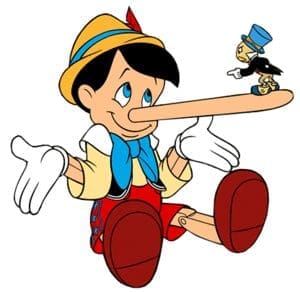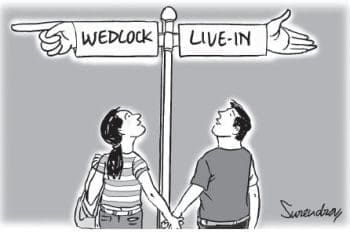
As soon as a child begins to comprehend language, he is bombarded with all kinds of morals in the form of anecdotes and rhymes; each being catchier than the last. One of the first and if I may add easiest to remember for a beginner to the world of moral values is Benjamin Franklin’s “Honesty is the best policy”. Slowly but surely, these words end up becoming an unquestioned dictum that dates back so far in our memories that no one remembers when they first came across it. And being the mindless drones that we are, we just HAVE to believe what has been taught to us as children: our elders couldn’t possibly wrong now; or could they?
This article though, is playing ‘Devil’s Advocate’ and stating that being ‘honest’ should not be a policy at all, let alone the best! ( If you are one of those high headed virtuous kinds, then this might be your first cue to stop reading)
A moral, in every sense of the word classifies issues into only two general criteria: Right and Wrong, Black and white, Good and Evil. The real world however has not just the in-between shades of grey (no pun-intended) but many more hues to its credit. It demands us to recognize, that not everything fits into these two polar extremes.
Now before the reader begins to think that this is absolutely berserk and that honesty couldn’t possibly be optional, I’d like to explain my point. How one classifies an issue depends on contrasting values: one would, for example agree that stealing is a crime; but no one ever accused Robin Hood of being immoral. Theft to feed the hungry, poor and destitute cannot possibly be categorized as wrong. A person who lies to a dying mother that his dead son is still alive cannot be considered to be a terribly dishonest person. In this case, the humane act of sparing the mother any additional unnecessary grief triumphs the dishonesty.

Also, the concept of truth is very vague. Are we always to tell the truth? Or are we to omit the unpleasant parts? And if we do is omission a form of lying? If so, then every moment we don’t reveal each thought that crosses our mind is an act of lying!
In Robert Brault’s words, always telling the truth and always lying are equally pathological conditions. People who proudly proclaim that they are brutally honest and downright frank get more satisfaction out of the brutality than out of the honesty. Wouldn’t it be better to be compassionate and empathetic that to create a fearful aura by using truth to cause harm and pain? This is where the absolutist value of honesty loses its relevance.
Thus, it all depends on the individual untruth, the situation, circumstances and effects that the truth may bring. Intelligent people realize and know how to deal with a difficult situation by not compromising with their principles and ideals.
Honesty is a good virtue, of course, but as humans, we need to be discerning when contrasting morals hold sway, after all, is to exercise good judgment and common sense.
We would love to hear from you. Send in your opinions, replies and articles at [email protected] or [email protected]




Be the first to comment